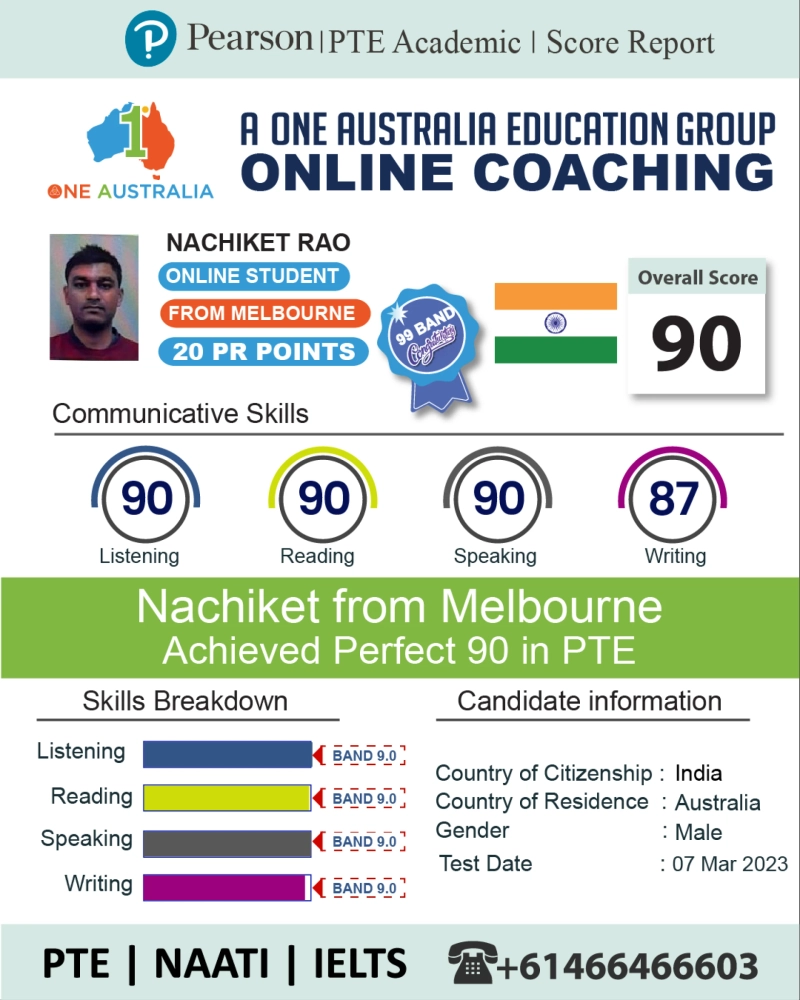Artificial Intelligence, often abbreviated as AI, has revolutionized various aspects of our lives, including the field of language testing. Language proficiency is a critical skill in today's globalized world, and accurate assessment is essential for academic, professional, and immigration purposes. In this blog post, we will explore the pivotal role that AI plays in language testing. Get the best AI powered results at the best PTE classes in Australia only at A One Australia Education.
1. Automated Scoring Systems
AI has significantly contributed to the development of automated scoring systems for language tests. Traditional language assessments, like TOEFL and IELTS, relied heavily on human examiners to evaluate responses. With AI, natural language processing (NLP) algorithms are employed to analyze written and spoken language, providing consistent and unbiased scoring. This ensures fairness and reliability in language testing.
2. Enhanced Language Proficiency Assessment
AI-powered language tests are not limited to basic grammar and vocabulary checks. They have evolved to assess more complex language skills, including fluency, coherence, and even sentiment analysis. This comprehensive evaluation provides a more accurate reflection of an individual's language abilities.
3. Personalized Learning and Feedback
AI-driven language assessments often come with personalized feedback and recommendations. These systems can identify specific areas where a test-taker needs improvement and suggest targeted language learning resources and exercises. This tailored approach accelerates language skill development.
4. Adaptive Testing
Adaptive testing is another remarkable application of AI in language assessment. AI algorithms analyze a test-taker's responses and adjust the difficulty of subsequent questions in real-time. This ensures that the test accurately gauges the individual's proficiency level, making the assessment more efficient and precise.
5. Improved Test Security
AI contributes to enhanced test security by implementing advanced techniques to detect cheating and fraud. It can identify suspicious behavior, such as excessive use of external resources during an online exam, preventing dishonest practices and preserving the integrity of language assessments.
6. Remote Testing Opportunities
The advent of AI has made it possible to conduct language tests remotely, especially relevant in the context of the COVID-19 pandemic. Test-takers can complete assessments from the comfort of their homes, eliminating the need for physical test centers and associated travel expenses.
7. Quick and Reliable Results
AI-powered language tests offer quick and reliable results. Gone are the days of waiting for weeks to receive scores. With AI, test-takers often receive their results within days, allowing them to meet tight deadlines for academic admissions or immigration applications.
8. Continuous Improvement
AI-driven language assessment systems continually evolve and improve. They learn from vast datasets and user interactions, adapting to changes in language usage and evolving linguistic trends. This ensures that language tests remain relevant and up-to-date.
9. Accessibility
AI has made language testing more accessible to a broader audience. With the availability of online assessments and the removal of geographical barriers, individuals from various corners of the world can take language tests without the constraints of physical test centers.
10. Cost-Efficiency
The automation of language testing through AI has also made it more cost-effective. Reduced human involvement in scoring and administration translates to lower test fees for candidates, making language assessments more affordable. (You can easily get good scores by contacting the best PTE coaching in Australia for cost effective coaching)
In conclusion, AI has become a game-changer in the field of language testing. Its impact is felt in automated scoring, personalized learning, test security, and accessibility. AI-powered language assessments not only provide a more accurate evaluation of language skills but also make the entire testing process more convenient and efficient. As technology continues to advance, we can expect AI to play an increasingly significant role in shaping the future of language testing, making it more accessible and beneficial for individuals worldwide.


